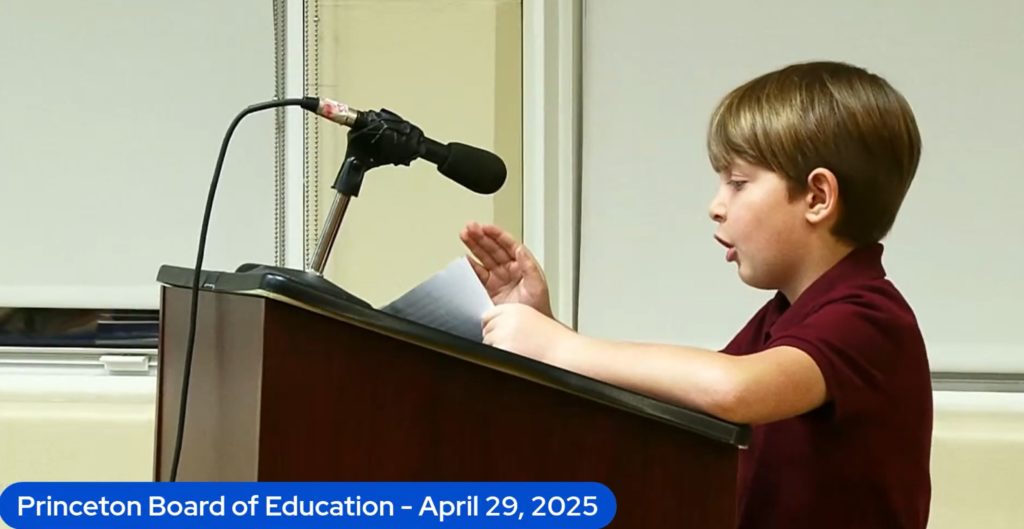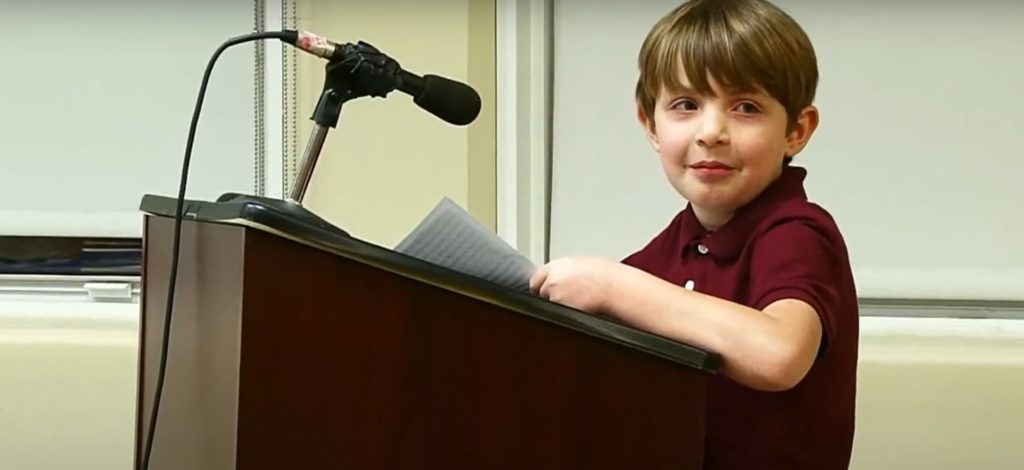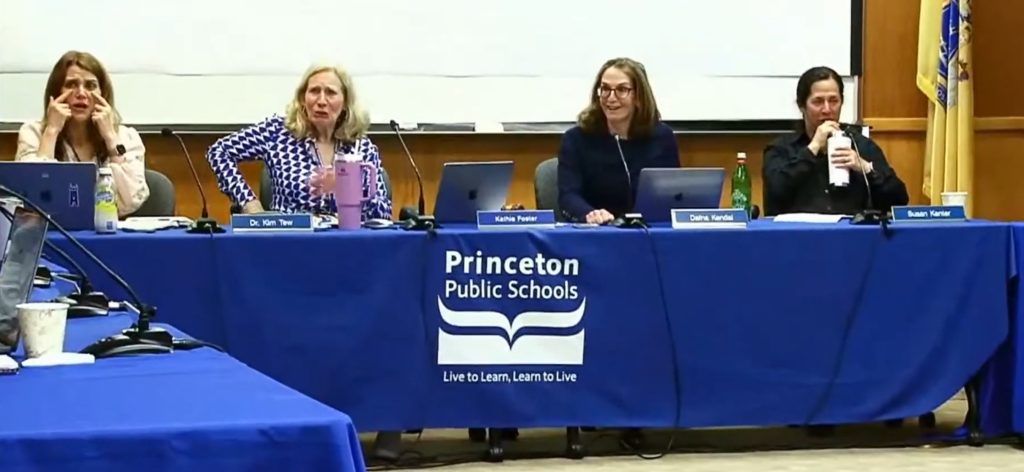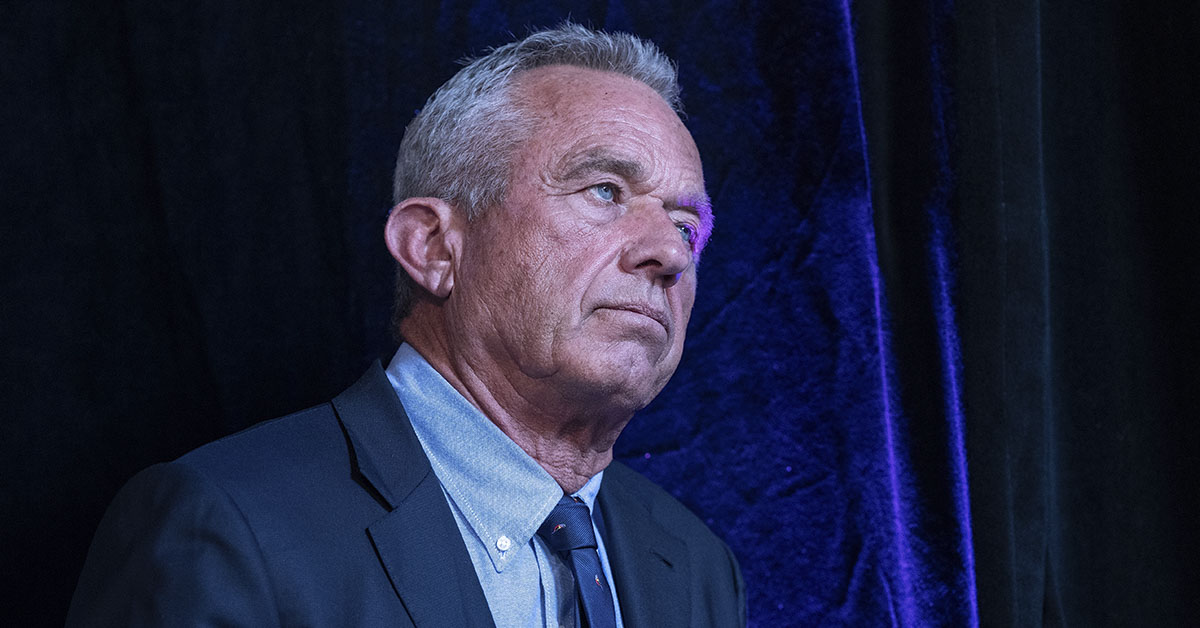In an unforgettable display of courage and clarity, nine-year-old Teddy, a fourth-grade student from Princeton, New Jersey, took a bold stand against misinformation during a local school board meeting. On April 29, during the public comment period at a Princeton Public Schools Board of Education meeting, Teddy addressed the recent statements made by Health and Human Services Secretary and presidential candidate Robert F. Kennedy Jr. about autism. Kennedy has repeatedly suggested that autism is a “tragedy,” a “preventable disease,” and something that robs children of a future. Teddy was not having it.
“I have autism,” he stated with conviction, “and I’m not broken.” In just six words, Teddy dismantled decades of stigmatizing language and reaffirmed the dignity of neurodivergent individuals everywhere.
Taking a Stand for Truth

Teddy, who attends Riverside Elementary School, spoke passionately before the board, challenging Kennedy’s claim that people with autism will “never have jobs or families” and asserting that the idea of vaccines causing autism is not just outdated but fundamentally wrong. “That’s not true,” he said firmly. “I hope that nobody in Princeton Public Schools believes RFK Jr.’s lies.”
His words immediately resonated, especially among parents, educators, and neurodiversity advocates who have long fought to dispel myths about autism. The video of his speech quickly went viral, spreading across TikTok, YouTube, and X (formerly Twitter), earning praise from all corners of the internet for his bravery, poise, and maturity.
The Dangers of Misinformation

Kennedy’s comments are not just offensive; they are dangerous. The myth that vaccines cause autism has been thoroughly discredited by the scientific community, yet it continues to circulate, largely due to public figures like Kennedy who perpetuate it. Numerous studies from the Centers for Disease Control and Prevention (CDC), the World Health Organization (WHO), and leading universities have confirmed that vaccines do not cause autism.
The original claim linking vaccines to autism came from a now-retracted 1998 study by Andrew Wakefield, which has been condemned as fraudulent. Despite this, the fear it sowed contributed to a decline in vaccination rates in many communities. This led to outbreaks of diseases like measles and mumps that had previously been under control.
But misinformation does more than threaten public health. It deepens stigma and discrimination against autistic individuals. When people hear autism described as a “tragedy” or a “catastrophe,” it reinforces the harmful idea that neurodivergent people are somehow lesser. For children like Teddy, these labels aren’t just inaccurate; they are deeply personal attacks.
Autism Is Not a Tragedy

Autism is a neurological and developmental difference that affects how people perceive the world, communicate, and interact with others. It is not a disease. It’s not a defect. And it’s certainly not something to be feared or eradicated.
People on the autism spectrum may process information differently or face challenges in social environments, but many also possess unique strengths, such as exceptional memory, focused attention, creative problem-solving, and deep expertise in their areas of interest. Autistic individuals contribute to society in countless ways as artists, scientists, authors, engineers, educators, and activists.
Read More: The Deadly Reason Why All Schools Should Stock Asthma Inhalers
The narrative that autism automatically equates to suffering erases the lives of millions of individuals living fulfilling, joyful, and successful lives. It invalidates their experiences and tells them they are less worthy simply because they are different.
The Stigma Around Autism

Despite greater public awareness, stigma surrounding autism remains widespread. Children with autism are more likely to be bullied at school. Adults with autism are often underemployed or unemployed, despite having the skills and education to succeed. Social misunderstandings can lead to isolation, mental health struggles, and discrimination.
The problem isn’t autism. It’s the way society treats autistic people. The biggest barriers autistic individuals face are often systemic, rooted in ignorance, outdated assumptions, and a lack of inclusive education. That’s why Teddy’s voice is so important. By asserting that he is not broken, he is challenging society to look at autism differently, not as a condition to fix, but as part of the natural diversity of human minds.
The Role of Schools and Education

During his speech, Teddy also criticized the school district’s limited approach to Autism Awareness Month. While wearing blue and posting signs that encourage kindness are steps in the right direction, he pointed out that these efforts don’t go far enough. There are no lessons, he said, that actually teach students about autism, the spectrum, or the real experiences of those who live with it.
“Kids need to be taught more about the different kinds of autism,” he said. He also suggested expanding the curriculum to include ADHD, cerebral palsy, dyslexia, and other developmental differences. “Because that’s what disabilities are like, a culture, a culture of differences.”
Teddy’s analogy is striking. Just as schools promote understanding of different ethnic and cultural backgrounds, they should also foster understanding of neurological diversity. Normalizing discussions around autism and other disabilities helps build empathy and breaks down harmful stereotypes.
The Harm of Misinformation from Public Figures

When someone in a position of power promotes falsehoods about a vulnerable group, the consequences ripple far beyond any single statement. Public figures have a responsibility to speak carefully, especially when discussing science, health, and identity.
Kennedy’s repeated references to autism as something that needs to be prevented or catalogued, including his support for a national autism registry, have drawn comparisons to eugenics. Groups like the Autistic Self Advocacy Network (ASAN) condemned such ideas, calling them privacy violations and deeply offensive.
“It’s not just misguided, it’s harmful,” said Julia Bascom, ASAN’s Executive Director. “The idea of a registry implies that autistic people are threats that need to be monitored. It dehumanizes us.”
This is especially chilling given the historical context. In the early 20th century, eugenics movements sought to sterilize or institutionalize people with disabilities. Language that echoes those policies, even unintentionally, risks reviving that dark history.
Read More: RFK Jr Proposes Major Overhaul of School Lunches To Remove Processed Foods
The Power of Self-Advocacy

In contrast, Teddy’s act of self-advocacy is rooted in empowerment and truth. In a world that too often tries to speak over or for autistic individuals, Teddy reminded everyone that autistic people have voices of their own and they deserve to be heard.
The neurodiversity movement, which emerged in the 1990s, argues that neurological differences like autism are part of natural human variation, not pathologies to be cured. Leaders in this movement emphasize inclusion, accessibility, and respect over intervention or “normalization.” Teddy’s message aligns powerfully with that vision.
When young people like Teddy speak up, they inspire others to question outdated beliefs, challenge discrimination, and reimagine what it means to belong.
Viral, But Not a Moment, a Movement

Teddy’s video went viral because his message felt urgent and true. But more than that, it represented a shift in how the world is beginning to understand autism, not through fear or pity, but through lived experience and pride. Thousands of viewers left comments praising his bravery. Parents of autistic children wrote that Teddy gave them hope for their kids’ futures. Autistic adults said they wished they had someone like Teddy to look up to when they were his age.
And perhaps most importantly, young autistic kids watching the video saw someone like themselves speaking out and winning respect. The School Board’s reaction was definitely one of admiration, support, and awe- and it’s the same reaction many of us had while watching Teddy’s speech.
A Lesson for the Nation

Teddy didn’t just address a school board. He spoke to an entire nation wrestling with how it treats its most vulnerable. He reminded us that children are listening, and that sometimes, they lead. His story is a reminder that when we create space for young people to speak, they rise to the occasion. When we allow people to tell their own stories, they challenge the lies that have silenced them. And when we listen, truly listen, we open the door to a more compassionate, inclusive world.
As Teddy stood up and delivered his truth, he wasn’t just correcting a politician. He was affirming the dignity of every autistic person who has ever been made to feel less than.

